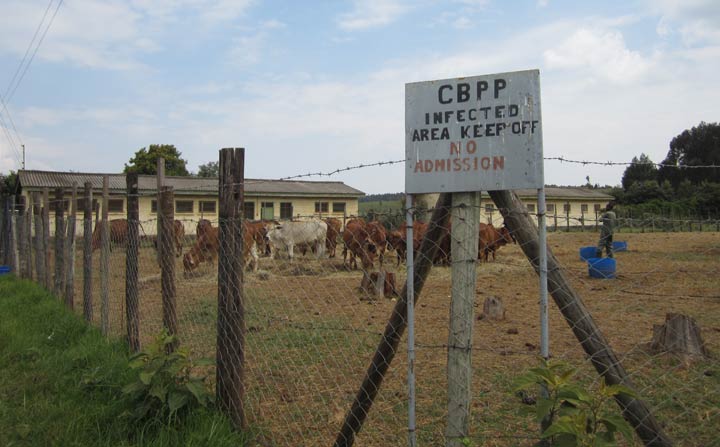Saskatoon-based VIDO-InterVac says it’s part of an international partnership that developed a new vaccine to protect cattle in Africa against an infectious lung disease.

According to the Canadian Food Inspection Agency (CFIA), contagious bovine pleuropneumonia (CBPP) was a major livestock disease worldwide throughout the 1800s and into the 1920s. It was eradicated in most countries by the early 1900s, but persists in Africa.
VIDO-InterVac officials said CBPP affects the livelihoods of approximately 24 million small-scale cattle farmers in Africa, causing over US$60 million annually in losses.

Get daily National news
There is no efficient treatment for the bacterial disease.
VIDO-InterVac officials said the vaccine demonstrated significant potential for protection against CBPP in trials.
“It is rewarding to see the results of this partnership. We are proud of the teamwork that enabled the development of this vaccine, and of strengthening the local production capacity in Africa,” VIDO-InterVac CEO Andrew Potter said in a press release.
The partnership also included the Kenya Agricultural and Livestock Research Organisation (KALRO) and the International Livestock Research Institute.
“This is a major milestone for farmers in Africa who have suffered major cattle losses as a result of CBPP-related deaths. We are happy to be part of the team that worked tirelessly to develop the new vaccine,” KALRO director general Eliud Kireger said in a press release.
The vaccine has been licensed by the Kenya Veterinary Vaccines Production Institute and commercial development has been initiated.
The University of Saskatchewan’s VIDO-InterVac was created in 1975 and has grown to a 150-member organization with a state-of-the-art containment facility.
CFIA officials said there is no human health risk associated with CBPP.


Comments